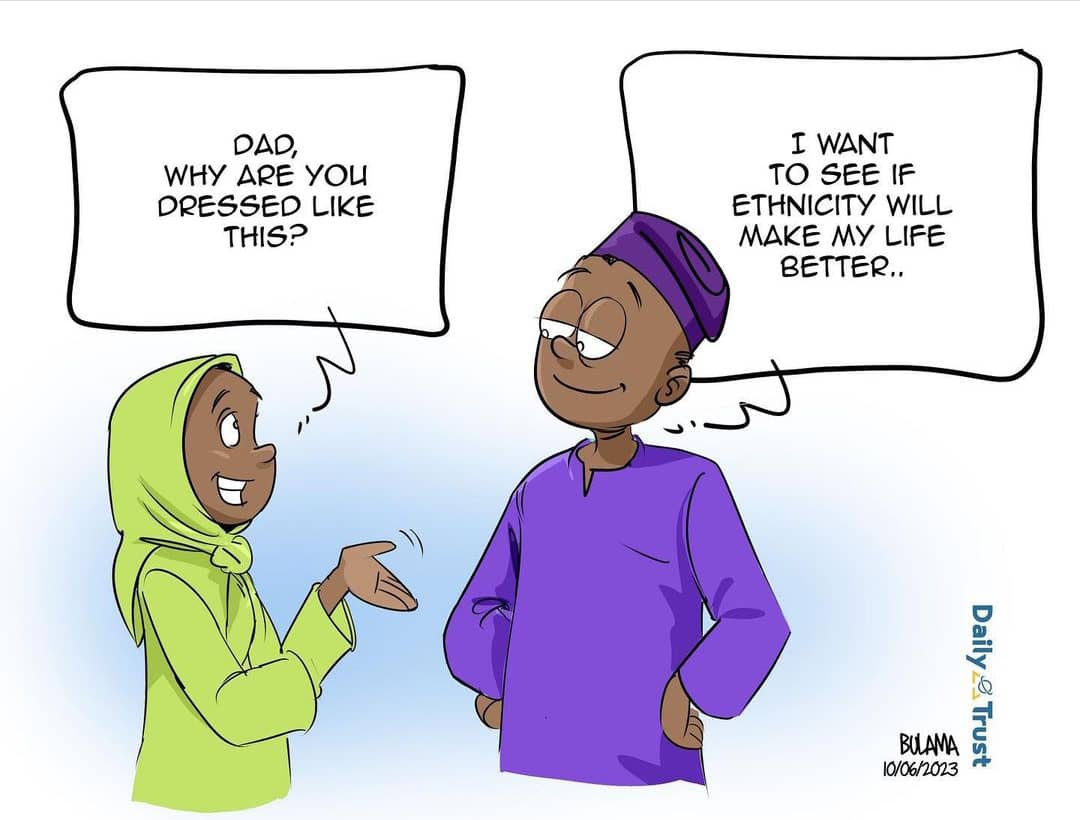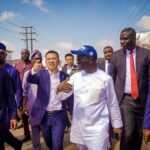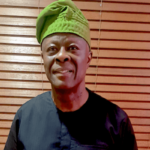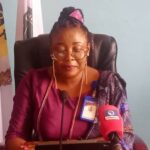By Murkthar Muhammad Suleiman
When a Nigerian meets another Nigerian abroad, we are one. But when we return to Nigeria, we often find the most trivial things to create separations.
Nigeria is a country of over 200 million citizens, two major religions, and over 500+ different tribes and ethnic cultures. And the continuous projection of this dynamic has led to a continuous increase in division among us who are residents of the country. Now, this is not to say that we must ignore the differences we have as a people. This is to say that while we recognize these differences, we must not allow them to lead us in to discriminating against others who may not belong to our “clusters”. In this piece, we will delve into how assumptions and stereotypes have fueled the otherization of Nigerians by Nigerians for years.
As with any society as large as ours, assumptions, stereotypes, and otherization can have harmful effects, perpetuating biases and prejudices that hinder progress and unity. The irony of this assertion is that as Nigerians, we all know this, but we are all still avid perpetrators of these menaces. From the subtle assumptions that “all Igbos are money mongers” to the belief that “all Fulanis are extremists” or that the Yorubas are overly ambitious. We even see this even in political movements. Political ideas that may suggest that just because you belong to one political crusade, you have to be more patriotic than others who uphold their constitutional rights to disagree with you. One way or the other, we have been guilty and criminals to stereotypes and the otherization of realities. And these otherizations are birthed from assumptions. Assumptions that are often unfounded and rooted in very shaky empirical evidence.
Assumptions, they say, are the lowest form of knowledge, yet it plays a significant role in shaping our perceptions of others. In Nigeria, assumptions are often made based on various factors, such as ethnicity, religion, socioeconomic status, and geographical origin. Nigerians, due to our diversity, are prone to making assumptions about fellow citizens without sufficient evidence, leading to misunderstandings and further exacerbating our division. For instance, individuals from certain regions may be presumed to be lazy or unintelligent, while those from other regions are perceived as corrupt or untrustworthy. These assumptions, often lacking in nuance and factual basis, create a climate of distrust and hinder cooperation among Nigerians which in turn births stereotypes.
Stereotypes are deeply ingrained assumptions. It is often the oversimplification of a group of people into one thing and the generalization of a perceived characteristics that streamlines one characteristic (which may be true) of a particular group. In Nigeria, stereotypes are pervasive and can be found across various aspects of society. Within our context, the first point of stereotypes are ethnic and religious bigotry, then in social concepts. The sad part is that these stereotypes are often perpetuated through social interactions, media representation, and cultural biases, and they hinder social cohesion and impede progress.
Stereotyping does not only distort the perception of individuals but also limits opportunities and creates barriers to success. It assumes before you know, and it projects before you actually see and because of that we are blinded and do not see people for who they are or what they have to offer. It fosters an environment where meritocracy is compromised, because individuals are judged based on preconceived notions (about their kind) rather than their abilities and achievements. Over time, these stereotypes become self-fulfilling prophecies, reinforcing negative beliefs and hindering the potential of Nigerians. The funny thing about stereotypes is that they thrive on the existence of human fallibility. And we ignore the fact that no one has the monopoly of being one thing. The continuous projection of stereotypes fueled by assumptions is what leads to otherizations.
Otherization occurs when a group is marginalized or excluded based on perceived differences. It is also a situation where we remove ourselves from the realities of something that ordinarily and realistically actually affects us. We are always quick to believe that there is always a “we vs them” in every social situation. Forgetting that just because we may have different viewpoints does not mean that we are not impacted. In Nigeria, otherization manifests in various forms, including the marginalization of certain ethnic groups, stigmatization of individuals, and discrimination against people from different regions or religious backgrounds. These practices not only undermine the principles of equality and inclusivity but also perpetuate a climate of division and animosity.
When Nigerians engage in otherization, we fail to recognize the shared humanity and the potential for collaboration among other diverse groups. By marginalizing certain people from us and creating pockets of clusters to hide, we deprive the nation of the contributions and perspectives that could enrich our collective experience. Overcoming otherization is crucial for the development of an inclusive society that values the contributions of all its members.
Since the conclusion of the last general elections, we have been strong perpetrators of otherization. Those who did not support the current President believe that just because they voted someone else on the ballot, then they must be living in a different Nigeria or that they are more Nigerians than other Nigerians. We have also seen the same arguments from the camp of those who supported the current president. The truth remains, however, that the realities of whatever happens in the coming days, months or years (depending on the outcomes of the court proceedings), we are all benefactors of the potential success or doom of this administration. Whatever happens here underscores our realities as Nigerians, whether we live here in the country or abroad. I mean, when the fuel subsidy removal policy hit the market, we all bought fuel at the same prices. There were no BVAS at petrol stations asking us to confirm whom we voted for. And when its projected positive impact starts to trickle down (hopefully), none of us will be exempted as well. This is not to say that we cannot criticize the government or hold it accountable for its actions and perhaps inactions. This is rather to say that we must not create divisive competitive lines among ourselves as citizens. We must band together and demand the Nigeria we want for ourselves.
So, as the court continues to carry out its duty on behalf of Nigerians, we have to understand that political division must give way to political reconciliation.
Now check yourself critically and carefully, check your biases and find what they are rooted on. Interrogate your thought processes and assess your belief systems. Are you still otherizing other Nigerians?

 Join Daily Trust WhatsApp Community For Quick Access To News and Happenings Around You.
Join Daily Trust WhatsApp Community For Quick Access To News and Happenings Around You.


